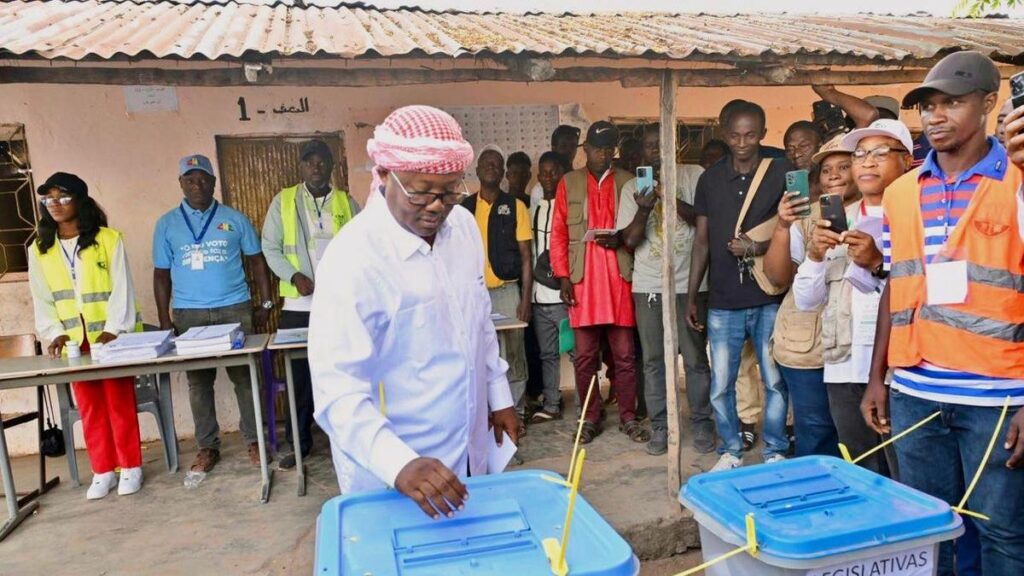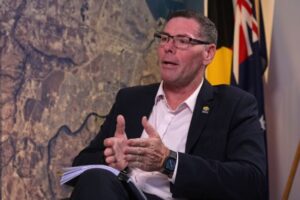
UPDATE: Just moments ago, a group of army officers in Guinea-Bissau has announced a coup, declaring they have seized power just before the anticipated results of a highly contested presidential election. The military has deposed President Umaro Sissoco Embalo, suspended the electoral process, and implemented a curfew across the nation.
In a statement broadcast on state television, military spokesman Dinis N’Tchama revealed the formation of “The High Military Command for the Restoration of Order,” which will oversee the country until further notice. The officers cited a “discovery of an ongoing plan” aimed at destabilizing the nation as the catalyst for this dramatic move.
Witnesses reported hearing gunfire near the electoral commission headquarters and the presidential palace earlier today, lasting for approximately one hour. The situation remains fluid, with no reports of casualties confirmed at this time.
The electoral commission was scheduled to announce provisional results from Sunday’s election today, where Embalo faced off against his main challenger, Fernando Dias. Both candidates had previously claimed victory after the first round of voting. Embalo was seeking to become the first president in three decades to secure a second consecutive term in this coup-prone nation situated between Senegal and Guinea.
Antonio Yaya Seidy, a spokesman for Embalo, alleged that unidentified gunmen attacked the electoral commission to prevent the announcement of results, claiming they were affiliated with Dias. However, a spokesperson for Dias has yet to respond to these accusations.
Former Prime Minister Domingos Simoes Pereira, who lost to Embalo in a contested runoff in 2019, defended Dias, stating he had no involvement in the violence. Pereira confirmed that Dias was safely in the capital Bissau during the gunfire incident and was meeting with election observers at the time.
The country has a long history of political instability, with at least nine coups and attempted coups since gaining independence from Portugal in 1974. Embalo himself has claimed to have survived three coup attempts during his tenure, facing accusations from critics of using manufactured crises to justify crackdowns on dissent.
As developments unfold, the international community is closely monitoring the situation. The future of Guinea-Bissau remains uncertain as tensions escalate. This coup marks a significant turning point, with potential implications for regional stability and democracy in West Africa.
Stay tuned for live updates as this story continues to develop.





